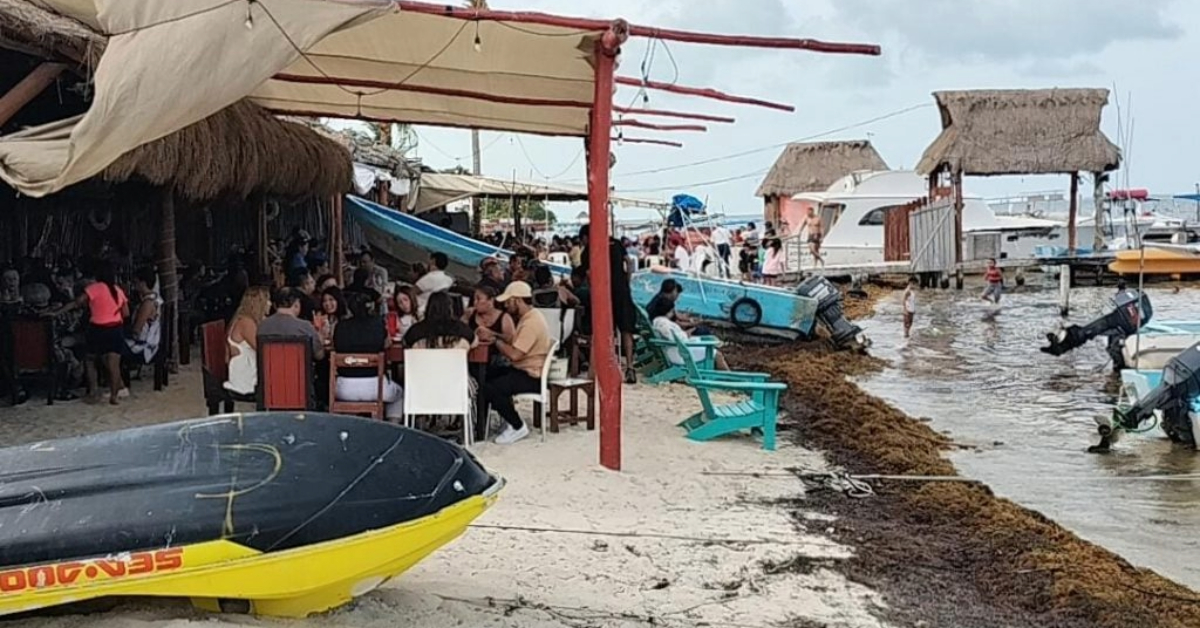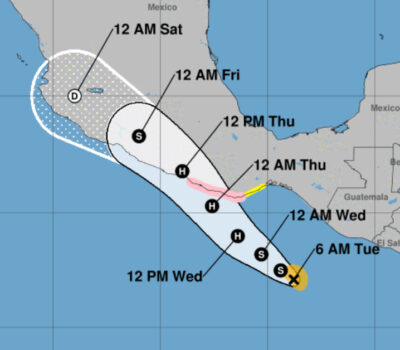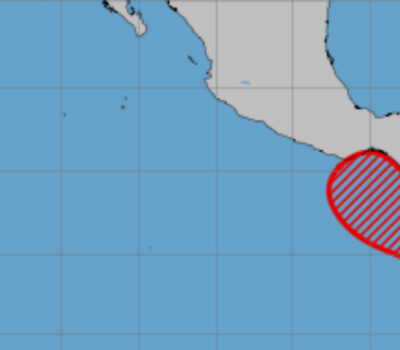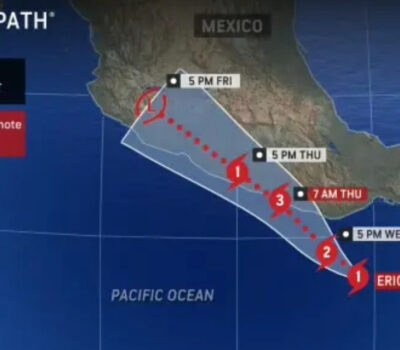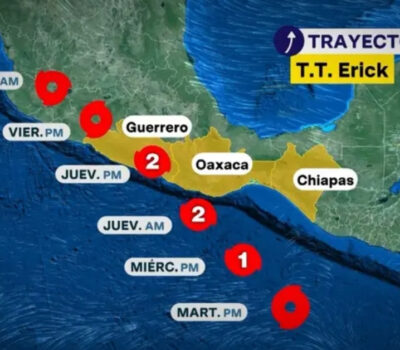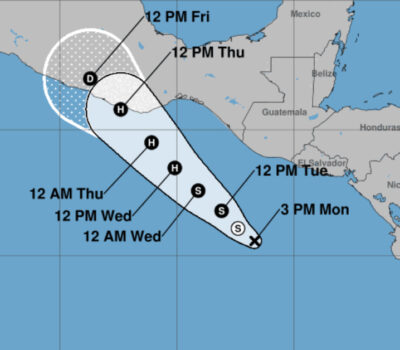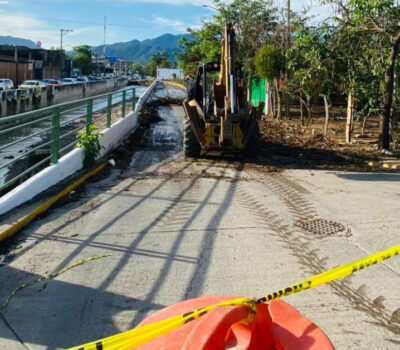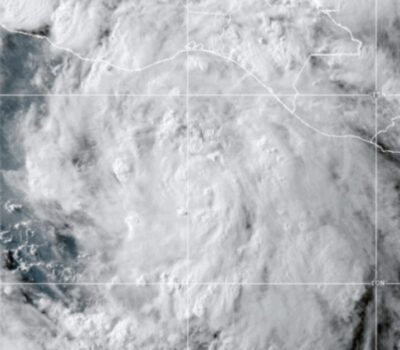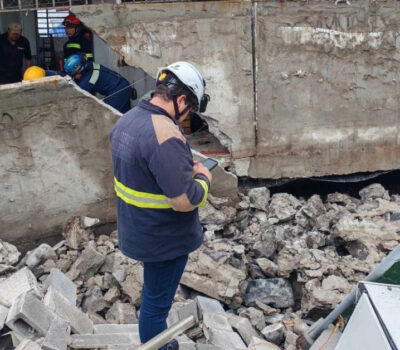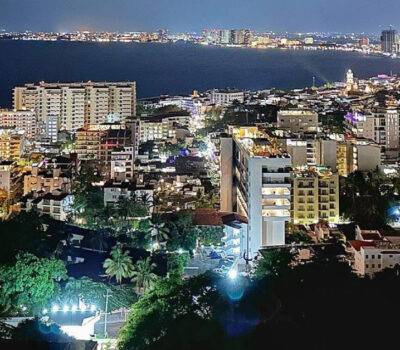Businesses in Cancún and Playa del Carmen report steep losses due to sargassum, with restaurants losing diners and beach clubs sending staff on unpaid leave.
Restaurants and beach clubs along the shores of Puerto Juárez in Cancún and Playa del Carmen are grappling with a sharp downturn in business due to a relentless invasion of sargassum, a type of brown algae that continues to wash up on the coast in thick, pungent piles.
In Puerto Juárez, dining establishments situated along the beachfront—stretching from the fishing boat zone to Playa del Niño—have seen their already-low off-season numbers fall even further. Waiters and staff report a noticeable decrease in customers, attributing the decline to the strong odor and unsightly appearance of the decaying algae.
“When the sargassum starts to rot in the sun, it smells terrible and draws in all kinds of insects,” said one waiter. “Even the regulars don’t want to sit near the beach anymore.”
The issue has become so severe that business owners have lodged complaints with the Puerto Juárez delegation, pleading for a cleanup strategy or at least regular removal of the seaweed. So far, there’s been no action, and many restaurant workers say they feel abandoned by local authorities.
Impact Spreads to Playa del Carmen
Further down the coast in Playa del Carmen, beach clubs are facing similar struggles. One club, whose workers spoke under condition of anonymity, has offered what it calls “solidarity vacations” to its entire staff—unpaid leave for one month—in a desperate bid to keep the business afloat without having to terminate employees.
According to staff, the decision came after nearly three weeks of empty beach chairs and zero lounge rentals. “There were just no clients. For 20 days, no one came,” said a worker. “Then we started hearing whispers that the owners were out of money. And eventually, they confirmed it—they couldn’t afford to pay us anymore.”
The club’s employees were given the option of taking unpaid leave instead of being fired outright. While the owners expressed hope that business would pick up in a few weeks, workers remain unsure whether they’ll be called back or left to fend for themselves during the peak of the sargassum season.
“We’re not the only ones,” the employee added. “There are other clubs and restaurants doing the same thing—sending workers home without pay, hoping this doesn’t drag on for months.”
A Broader Economic Threat
Sargassum has become a recurring and intensifying issue for coastal communities throughout the Riviera Maya. What was once a seasonal nuisance has turned into a long-term threat to local economies, especially those reliant on beach tourism.
Scientists have linked the explosion of sargassum blooms to rising sea temperatures, nutrient pollution, and ocean currents that push the algae toward Caribbean shores. Once beached, the algae quickly decomposes, releasing hydrogen sulfide gas that smells like rotten eggs and creating a visually unappealing shoreline.
While tourists in luxury resorts may still find clear waters in artificially cleaned zones, smaller and local businesses, particularly those in Puerto Juárez and parts of Playa del Carmen, lack the resources to combat the tide.
Calls for Government Action
Local business owners are calling for immediate intervention from municipal and state authorities. They are asking for coordinated cleanups, equipment for removing sargassum, and even financial relief for affected workers and establishments.
“This is no longer just a seasonal inconvenience—it’s an economic emergency,” said one restaurant manager in Cancún. “We need help. Otherwise, more jobs will be lost, and more families will go without income.”
With summer just beginning and tourist activity already underwhelming, there’s a growing sense of urgency to address the sargassum crisis before more businesses are forced to shut their doors or let go of staff.
As workers wait to hear whether they’ll be called back from their involuntary “vacations,” the beaches of Puerto Juárez and Playa del Carmen remain covered in a thick, decaying carpet of brown algae, a grim symbol of how vulnerable coastal economies are to environmental challenges.
Businesses in Cancún and Playa del Carmen report steep losses due to sargassum, with restaurants losing diners and beach clubs sending . . .

